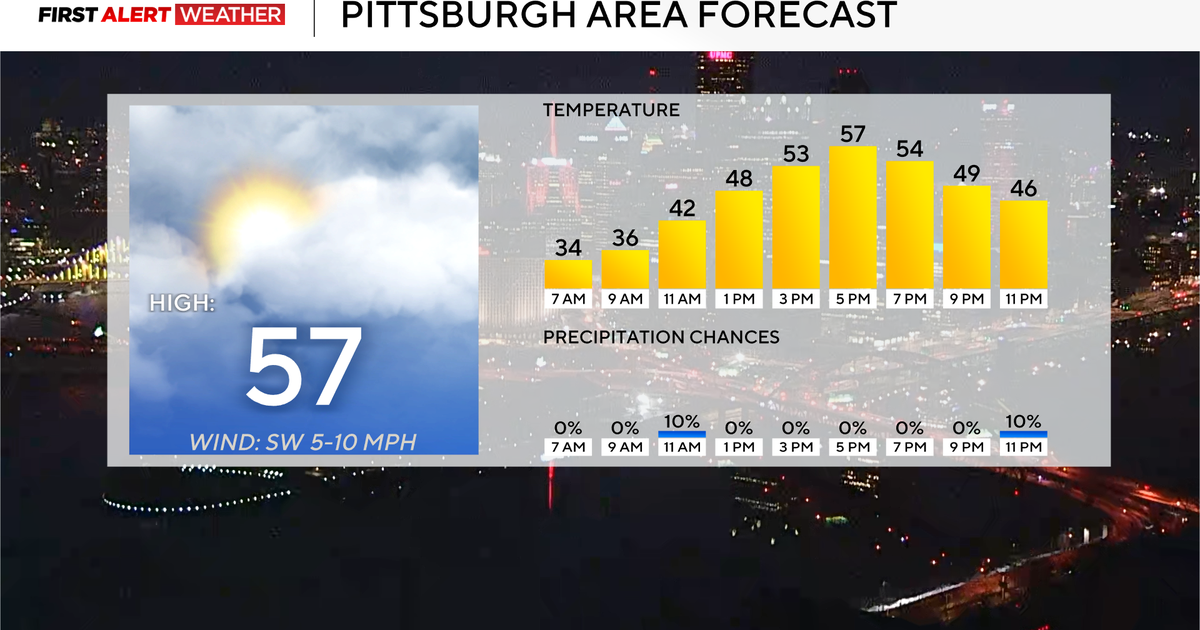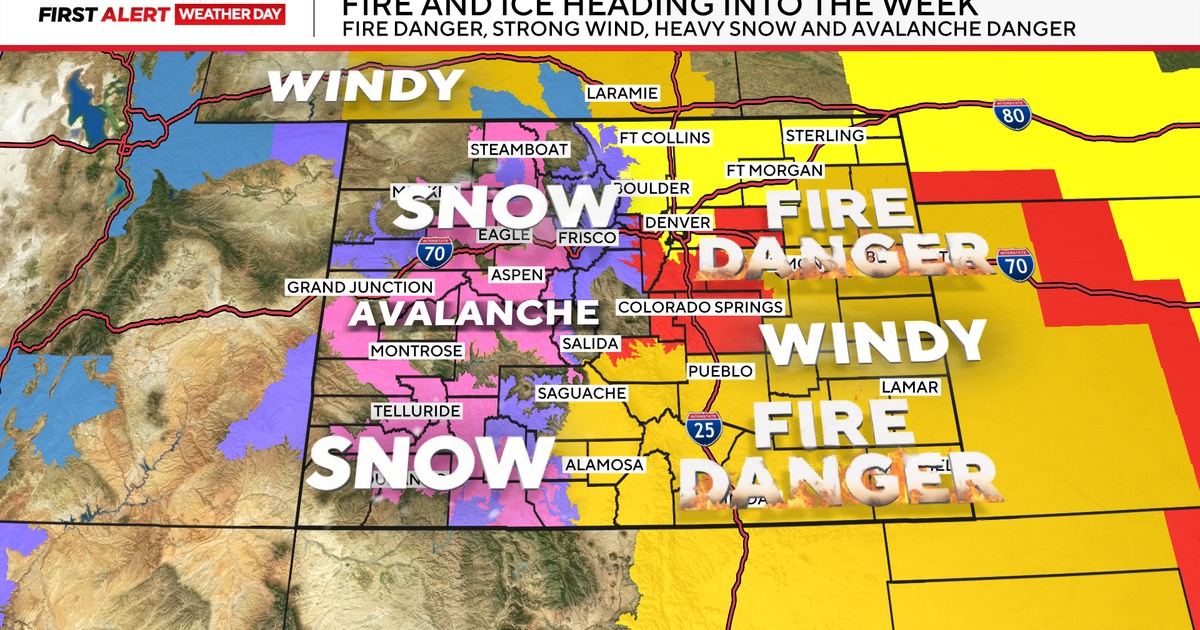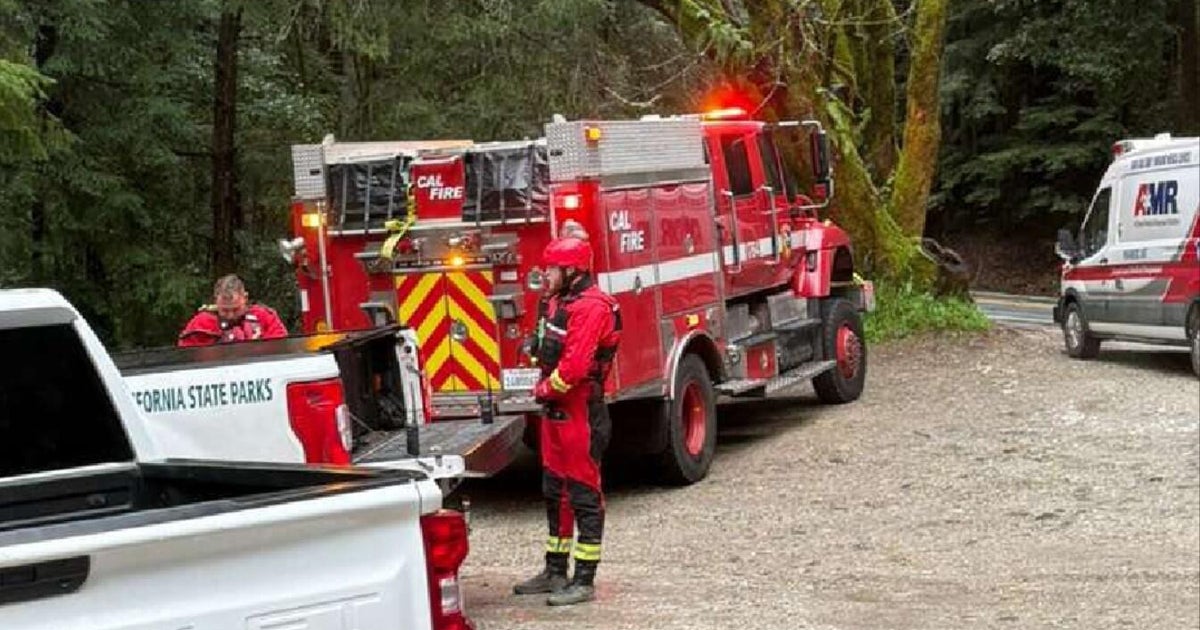High Risk Of Rip Currents Expected Friday For S. Fla. Beaches
MIAMI (CBS4)- Officials are asking beachgoers in South Florida to use extreme cautions as a high risk of rip currents is expected Friday.
Florida Division of Emergency Management officials are reminding beachgoers in Palm Beach, Broward and Miami-Dade counties to beware.
When red flags are flying, beachgoers need to be aware that swimming in the Atlantic Ocean can be dangerous, officials said. Although the rest of the state will see a low risk Friday afternoon, rip currents can develop at any time and swimmers should use caution when entering the water.
"Though the area will experience warm, pleasant summer weather, strong onshore winds and ocean swells can create rough surf and dangerous rip currents along the beaches of Southeast Florida today," said State Meteorologist Amy Godsey. "Beachgoers should check the warning flag signs before entering the water and swim within sight of a lifeguard."
A rip current is a narrow, powerful current of water that runs perpendicular to the beach, out into the ocean. These currents may extend 200 to 2,500 feet lengthwise, but they are typically less than 30 feet wide. Also, rip currents can often move at more than five miles per hour or faster and are not always identifiable to the average beachgoer.
There are a number of safety tips to look out for when at the beach:
- Whenever possible, swim at a lifeguard-protected beach.
- Be cautious at all times, especially when swimming at unguarded beaches.
- Obey all instructions and orders from lifeguards. Lifeguards are trained to identify hazards. Ask a lifeguard about the conditions before entering the water. This is part of their job.
- Learn how to swim in the surf. It's not the same as swimming in a pool or lake. Also, never swim alone.
- Stay at least 100 feet away from piers and jetties. Permanent rip currents often exist alongside these structures.
- Consider using polarized sunglasses when at the beach. They will help you to spot signatures of rip currents by cutting down glare and reflected sunlight off the ocean's surface.
- Pay especially close attention to children and persons who are elderly when at the beach. Even in shallow water, wave action can cause loss of footing.
If caught in a rip current:
- Remain calm to conserve energy and think clearly.
- Never fight against the current.
- Think of a rip current like a treadmill that cannot be turned off, which you need to step to the side of.
- Swim out of the current in a direction following the shoreline. When out of the current, swim at an angle--away from the current--towards shore.
- If you are unable to swim out of the rip current, float or calmly tread water. When out of the current, swim towards shore.
- If you are still unable to reach shore, draw attention to yourself by waving your arm and yelling for help.
If you see someone in trouble, don't become a victim too, officials said. There are a number of steps to carry out, including getting help from a lifeguard, but if a lifeguard is not available, have someone call 911. You can also throw the rip current victim something that floats--a lifejacket, a cooler, an inflatable ball.
Yell instructions on how to escape the rip current is also advised.
Boaters should also practice safe boating procedures.
- Have a VHF Marine Band Radio and NOAA Weather Radio on board.
- Check the marine forecast well ahead of time.
- Know the limitations of your boat. If small craft advisories or gale warnings are issued, you should postpone travel.
- Be sure everyone aboard is wearing a life jacket.
- File a float plan at your marina.
- Thunderstorms and weather-related hazards form quickly. Never let these storms cut off your route back to land.
Beachgoers who want to learn more about rip currents can visit www.ripcurrents.noaa.gov. Boaters can go to www.srh.noaa.gov/wml to check the current marine conditions and updated forecasts.
For more information on the Florida Division of Emergency Management and to GET A PLAN!, please visit: www.FloridaDisaster.org.







